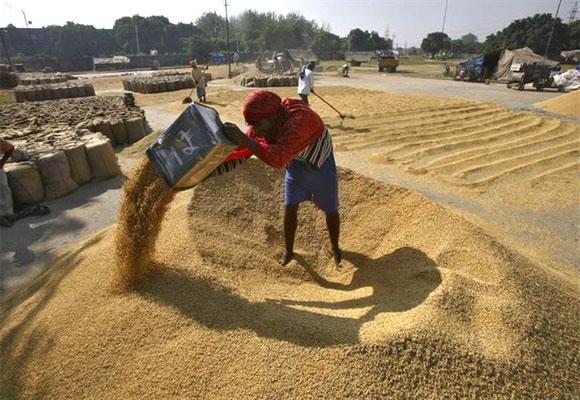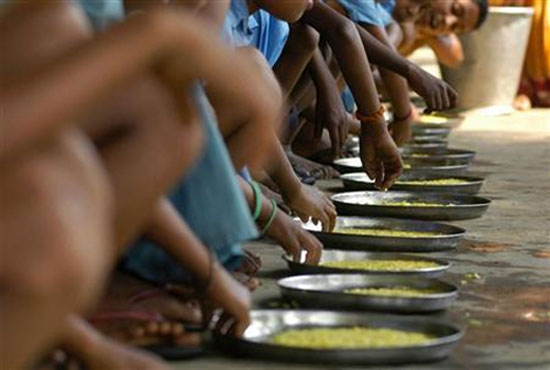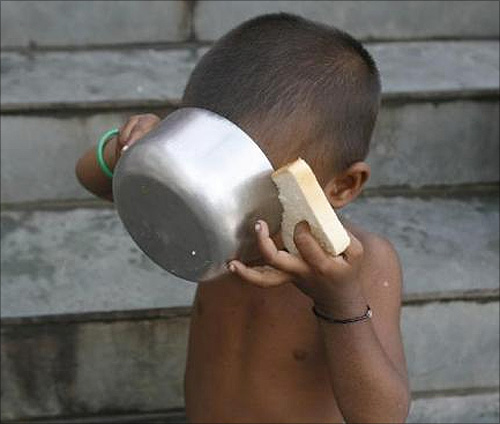 | « Back to article | Print this article |
How the Food Security Bill will drain the economy
The overall fiscal and inflationary consequences of the Food Security Bill for the country are "large" and will become clear from the next fiscal year, a report by Nomura Holdings said.
The government on Wednesday decided to issue an ordinance to give two-thirds of the population the right to get 5 kgs of foodgrains every month at subsidised rates of Rs 1-3 per kg.
Click NEXT to read more...
How the Food Security Bill will drain the economy
"While this bill is justifiable on welfare grounds, the macroeconomic implications of the bill are quite significant," Nomura economist Sonal Varma said in the report.
"India's current macroeconomic position does not provide the space to implement this policy," Varma added.
The global brokerage firm noted the bill would not have a substantial impact in the current financial year (FY13-14) as it is likely to be implemented in phases and three months of the fiscal year have already passed.
Click NEXT to read more...
How the Food Security Bill will drain the economy
"However, the medium-term consequences of the bill could be far reaching and will be clear from FY15 onwards," Nomura said.
The government plans to spend Rs 1,25,000 crore every year to supply 62 million tonnes of rice, wheat and coarse cereals through the public distribution system.
According to Nomura, the bill would raise the government's food subsidy burden to an estimated 1.0-1.2 per cent of GDP per annum from 0.8 per cent currently. There would also be additional expenses on creating the infrastructure needed to implement the food security bill.
Click NEXT to read more...
How the Food Security Bill will drain the economy
In case of a deficient monsoon, the country may need to import grains, which could send global foodgrain prices higher. As the government would procure a substantial part of the domestic foodgrain production, there would be a scarcity for the private sector, which in turn would push prices higher.
Consumption demand for other items would rise as a lower amount of disposable income would need to be spent on grains.
"Therefore, the overall fiscal and inflationary consequences of the Food Security Bill are large," Nomura said.



